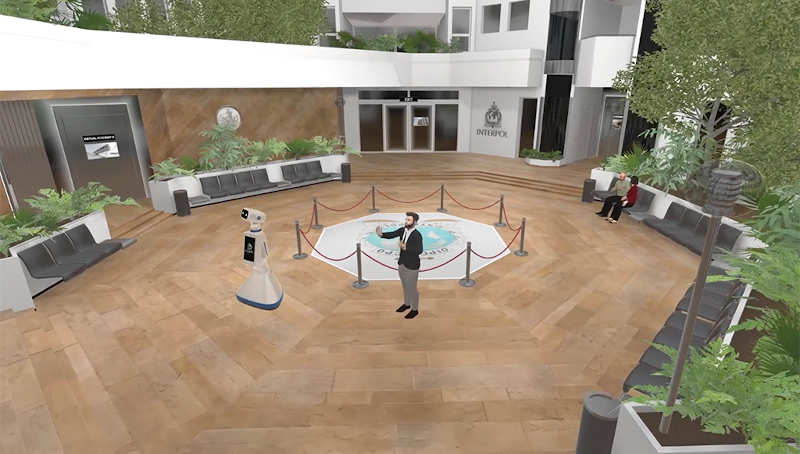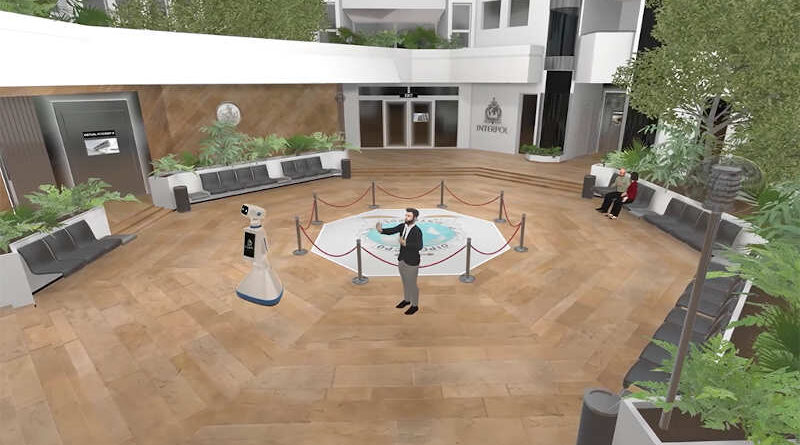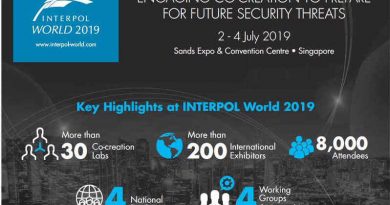INTERPOL Metaverse Offers Training to Law Enforcement Officers in Virtual World

The Metaverse holds many benefits for law enforcement, notably in terms of remote work, networking, collecting and preserving evidence from crime scenes, and delivering training.
At a session of the 90th INTERPOL General Assembly in New Delhi, the global police organization unveiled the first ever Metaverse specifically designed for law enforcement worldwide.
The INTERPOL Metaverse allows registered users to tour a virtual facsimile of the INTERPOL General Secretariat headquarters in Lyon, France without any geographical or physical boundaries, interact with other officers via their avatars, and even take immersive training courses in forensic investigation and other policing capabilities.
The INTERPOL Metaverse is provided through the INTERPOL Secure Cloud, ensuring its neutrality. During the interactive session in October 2022, General Assembly delegates in New Delhi were able to digitally enter the Lyon building through avatars, using virtual reality headsets.
“For many, the Metaverse seems to herald an abstract future, but the issues it raises are those that have always motivated INTERPOL – supporting our member countries to fight crime and making the world, virtual or not, safer for those who inhabit it,” said INTERPOL Secretary General Jürgen Stock. “We may be entering a new world, but our commitment remains the same.”
In a follow-up panel discussion, INTERPOL also announced the creation of an Expert Group on the Metaverse to represent the concerns of law enforcement on the global stage – ensuring this new virtual world is secure by design.
The Metaverse is often discussed as the potential next stage in the development of the Internet. INTERPOL says that by 2026, one in every four people will spend at least an hour a day in the Metaverse to work, study, shop and socialize, according to technology research firm Gartner.
As the newly released INTERPOL Global Crime Trend report shows, crime has increasingly moved online as the pace of digitalization has increased. If the boundaries of our physical world move ever further into a digital – and seemingly borderless – realm, the panel discussion asked, ‘how can law enforcement continue to protect communities and guarantee the rule of law?’
According to INTERPOL, criminals are already starting to exploit the Metaverse. The World Economic Forum, which has partnered with INTERPOL, Meta, Microsoft and others in an initiative to define and govern the Metaverse, has warned that social engineering scams, violent extremism and misinformation could be particular challenges.
As the number of Metaverse users grows and the technology further develops, the list of possible crimes will only expand to potentially include crimes against children, data theft, money laundering, financial fraud, counterfeiting, ransomware, phishing, and sexual assault and harassment.
For law enforcement, according to INTERPOL, some of these threats are likely to present significant challenges, because not all acts that are criminalized in the physical world are considered crimes when committed in the virtual world.
“By identifying these risks from the outset, we can work with stakeholders to shape the necessary governance frameworks and cut off future criminal markets before they are fully formed,” said Madan Oberoi, INTERPOL’s Executive Director of Technology and Innovation. “Only by having these conversations now can we build an effective response.”
The Metaverse holds many benefits for law enforcement, notably in terms of remote work, networking, collecting and preserving evidence from crime scenes, and delivering training. Capacity building in the Metaverse holds particular promise, offering students more opportunities to collaborate and network, ensuring a greater engagement through immersion and enabling hands-on activities.
In a live demonstration, experts from the INTERPOL Capacity Building and Training Directorate delivered a training course on travel document verification and passenger screening using INTERPOL capabilities in a Metaverse classroom. Students were then teleported to an airport where they were able to apply their newly acquired skills at a virtual border point.
💛 Support Independent Journalism
If you find RMN News useful, please consider supporting us.




